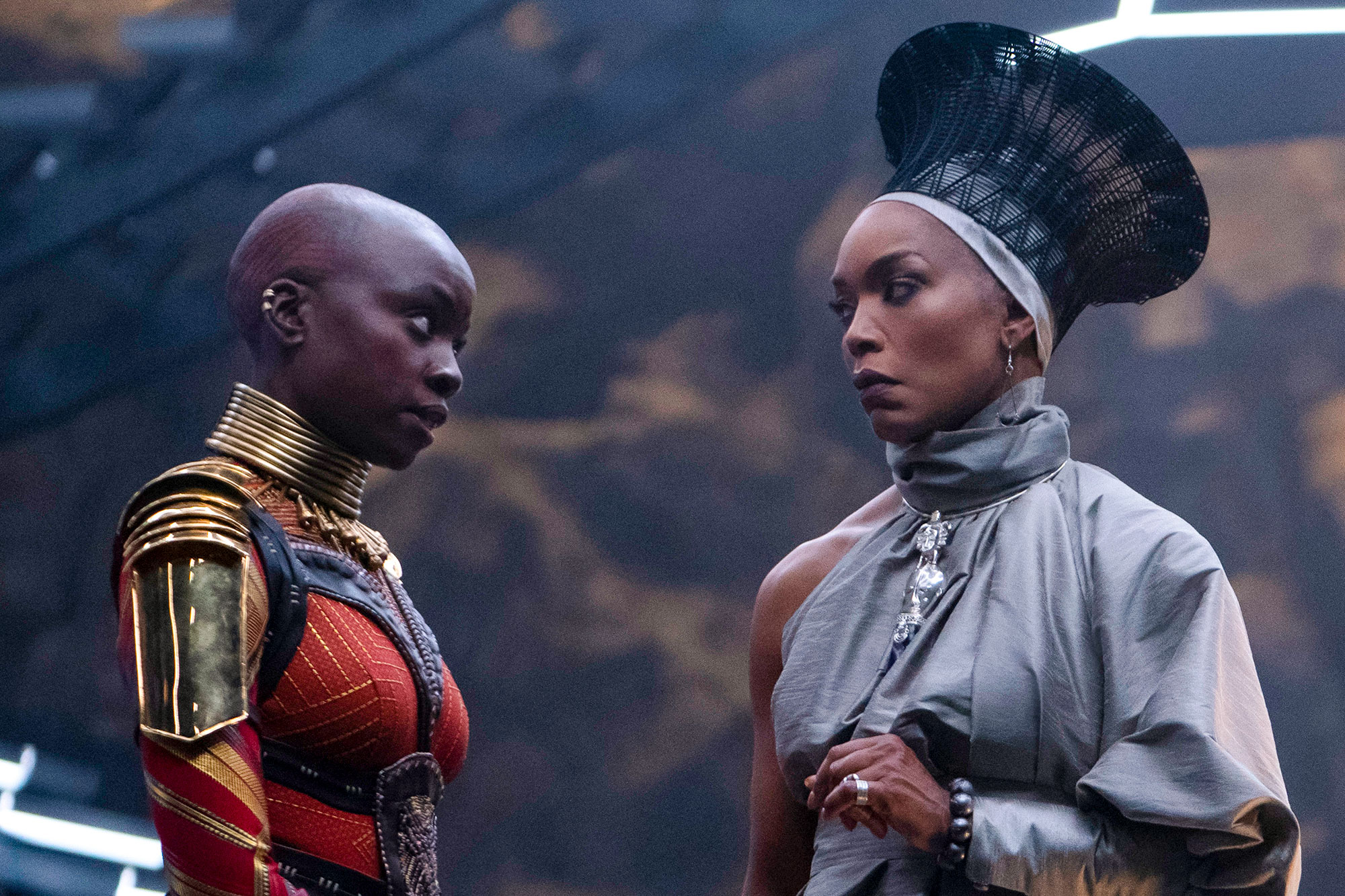“This one’s a little different” is what every critic trots out while reviewing a new Marvel movie, as if they’re not all running the same plays to inevitable ends. Yet—unusually somber and slow-paced for an MCU film—Black Panther: Wakanda Forever bears both the pressure of honoring fallen star Chadwick Boseman’s legacy and what it means to be follow-up to a Best Picture-nominated cultural phenomenon. The true “prestige” Marvel picture—and closer to Christopher Nolan or Denis Villeneuve’s blockbusters—it borders on being less a film continuing themes that resonated with audiences and, rather, about itself, resulting in artistic tensions both interesting and frustrating.
Despite bookending itself with memorials for Boseman, Ryan Coogler’s film is oddly lacking time to grieve. With T’Challa gone, it functions more as an ensemble—a particularly Black female-led one that provides ample screentime for a game veteran like Angela Bassett, an oft-under-utilized star such as Lupita Nyong’o, and even a newcomer (I May Destroy You’s Michaela Coel). Of course they’re all thrown in the middle of super heroics as tensions arise when Wakanda crosses paths with Namor (Tenoch Huerta), famously Marvel comics’ iteration of Aquaman but here reconfigured into a mutant who witnessed the colonization of the Mayan people by the Spanish empire in the 16th century. His underwater tribe possesses vibranium, the same material as the African nation, and after American forces’ attempts to steal it (an effective sequence that plays more like horror), Namor wants their allyship in war against the surface world—which the country that pivoted from isolationism to playing ball with the CIA last time around seems to balk at.
If often more ambitious, Wakanda Forever is also, in its lumbering narrative, a more awkward film than its predecessor. Chiefly in how Shuri (Letitia Wright) taking the Black Panther mantle from her dead brother feels like a foregone conclusion—not something we need the first two acts of a 160-minute film to reach. And it’s odd to have such a distended runtime when Namor’s motivation is so similar to Killmonger’s in the previous film. Making the villains again those with legitimate grievances about colonization and theft of resources (rather than the colonizers themselves) reeks of centrist bet-hedging about what audiences can handle, even if Coogler manages a touching grace note against violence near the end of his movie’s climax. Once more it points to some big showdown being requirement before necessity.
And despite its far greater formal ambition, there still seems a jerky relationship between practical and computer-generated spectacle. For the many impressive images conjured, it’s hard for your heart not to sink a little when Namor starts flying through the air like any other Marvel superbeing. As the lone auteur within the Kevin Feige industrial complex, Coogler seems to have been granted the allowance of having less connection to the cinematic universe, yet the film stops dead in its tracks when Julia Louis-Dreyfus (looking like Tulsi Gabbard) shows up as some kind of government operative who’s apparently a major part of Disney+’s Hawkeye. At least the other dull, white CIA character Ross (Martin Freeman) gets a kind-of-funny gag where he’s introduced to a Red Hot Chili Peppers song.
Critics and audiences have wondered how much longer the Marvel bubble can last; Wakanda Forever‘s auteurist direction at least somewhat points to a new place. But to maintain interest at the same time: that’s a whole other question.
Black Panther: Wakanda Forever opens on Friday, November 11.

